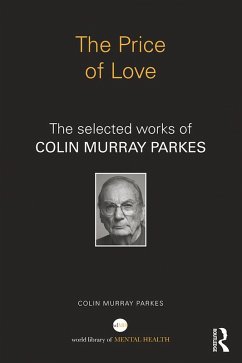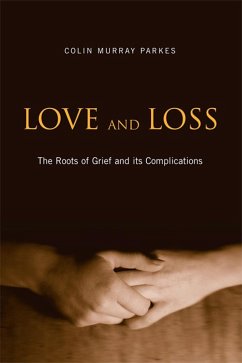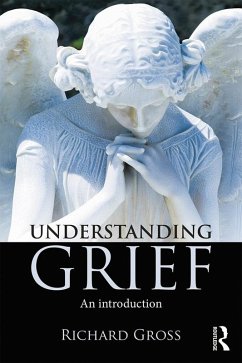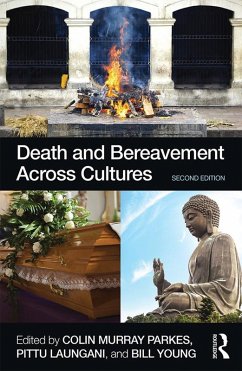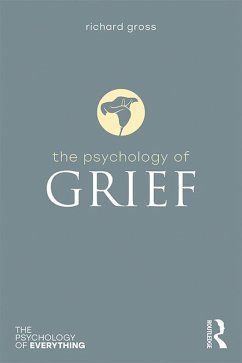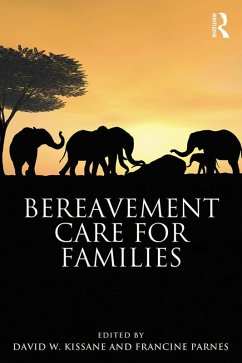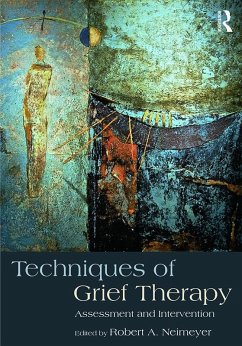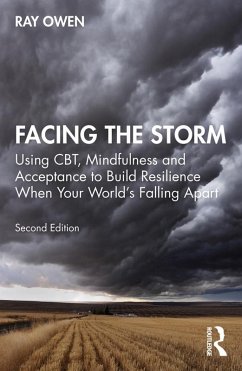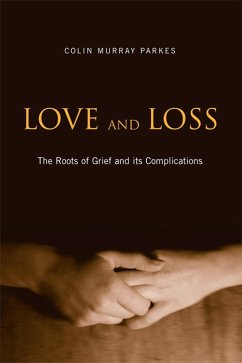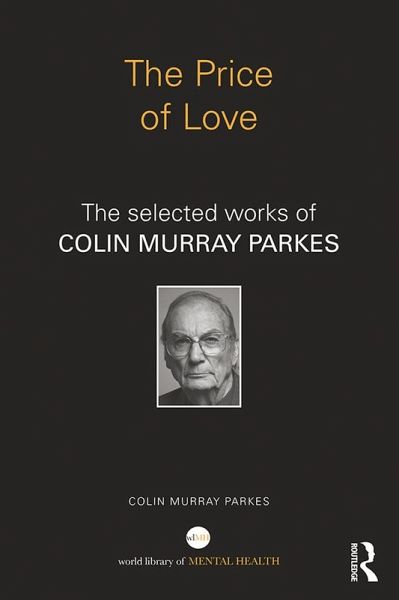
The Price of Love (eBook, ePUB)
The selected works of Colin Murray Parkes
Versandkostenfrei!
Sofort per Download lieferbar
48,95 €
inkl. MwSt.
Weitere Ausgaben:

PAYBACK Punkte
24 °P sammeln!
In the course of a long career Colin Murray Parkes, one of the most important and influential psychiatrists working in the field of bereavement and loss, has produced a body of work which can be considered truly ground-breaking. His early studies involved working alongside John Bowlby in the development of attachment theory and led to his pioneering work on the Harvard Bereavement Project in the USA and at the new St Christopher's Hospice in Britain. Parkes focussed on two psychological processes, grief, which is the painful search for a lost person or object of attachment, and transition, whi...
In the course of a long career Colin Murray Parkes, one of the most important and influential psychiatrists working in the field of bereavement and loss, has produced a body of work which can be considered truly ground-breaking. His early studies involved working alongside John Bowlby in the development of attachment theory and led to his pioneering work on the Harvard Bereavement Project in the USA and at the new St Christopher's Hospice in Britain. Parkes focussed on two psychological processes, grief, which is the painful search for a lost person or object of attachment, and transition, which is the process of changing the assumptive world in ways that ensure that nothing worthwhile need be completely lost. Out of the struggle to resolve the conflict between holding on and letting go of the old assumptions there gradually emerges a new and more mature model of the world.
These ideas throw light on a wide range of life change events and have proved useful to people faced with bereavement, physical disabilities, dying, disasters and even terrorist attacks. In recent years he has supported humanitarian efforts in countries including Rwanda, India and Japan. Parkes' career has spanned several decades and touched countless lives. In The Price of Love, Parkes presents papers which span the full extent of his career, covering and linking together our understanding of the five major areas of his work:
- Love and grief;
- Crisis, trauma and transition;
- Death and dying;
- Disasters;
- War and terrorism: breaking the cycle.
The papers included here have been carefully selected and annotated to show how Parkes' thinking has developed during a career as researcher, practitioner and educator. In each section of the book psychological and social causes are paired with consequences and interventions (both preventive and therapeutic) and explored from Western and cross-cultural perspectives, all with Parkes' customary clarity and compassion.
This unique collection of papers will prove invaluable to psychologists, psychiatrists, palliative care staff, counsellors and students, as well as those studying international conflict and working with the bereaved.
These ideas throw light on a wide range of life change events and have proved useful to people faced with bereavement, physical disabilities, dying, disasters and even terrorist attacks. In recent years he has supported humanitarian efforts in countries including Rwanda, India and Japan. Parkes' career has spanned several decades and touched countless lives. In The Price of Love, Parkes presents papers which span the full extent of his career, covering and linking together our understanding of the five major areas of his work:
- Love and grief;
- Crisis, trauma and transition;
- Death and dying;
- Disasters;
- War and terrorism: breaking the cycle.
The papers included here have been carefully selected and annotated to show how Parkes' thinking has developed during a career as researcher, practitioner and educator. In each section of the book psychological and social causes are paired with consequences and interventions (both preventive and therapeutic) and explored from Western and cross-cultural perspectives, all with Parkes' customary clarity and compassion.
This unique collection of papers will prove invaluable to psychologists, psychiatrists, palliative care staff, counsellors and students, as well as those studying international conflict and working with the bereaved.
Dieser Download kann aus rechtlichen Gründen nur mit Rechnungsadresse in A, B, BG, CY, CZ, D, DK, EW, E, FIN, F, GR, HR, H, IRL, I, LT, L, LR, M, NL, PL, P, R, S, SLO, SK ausgeliefert werden.




